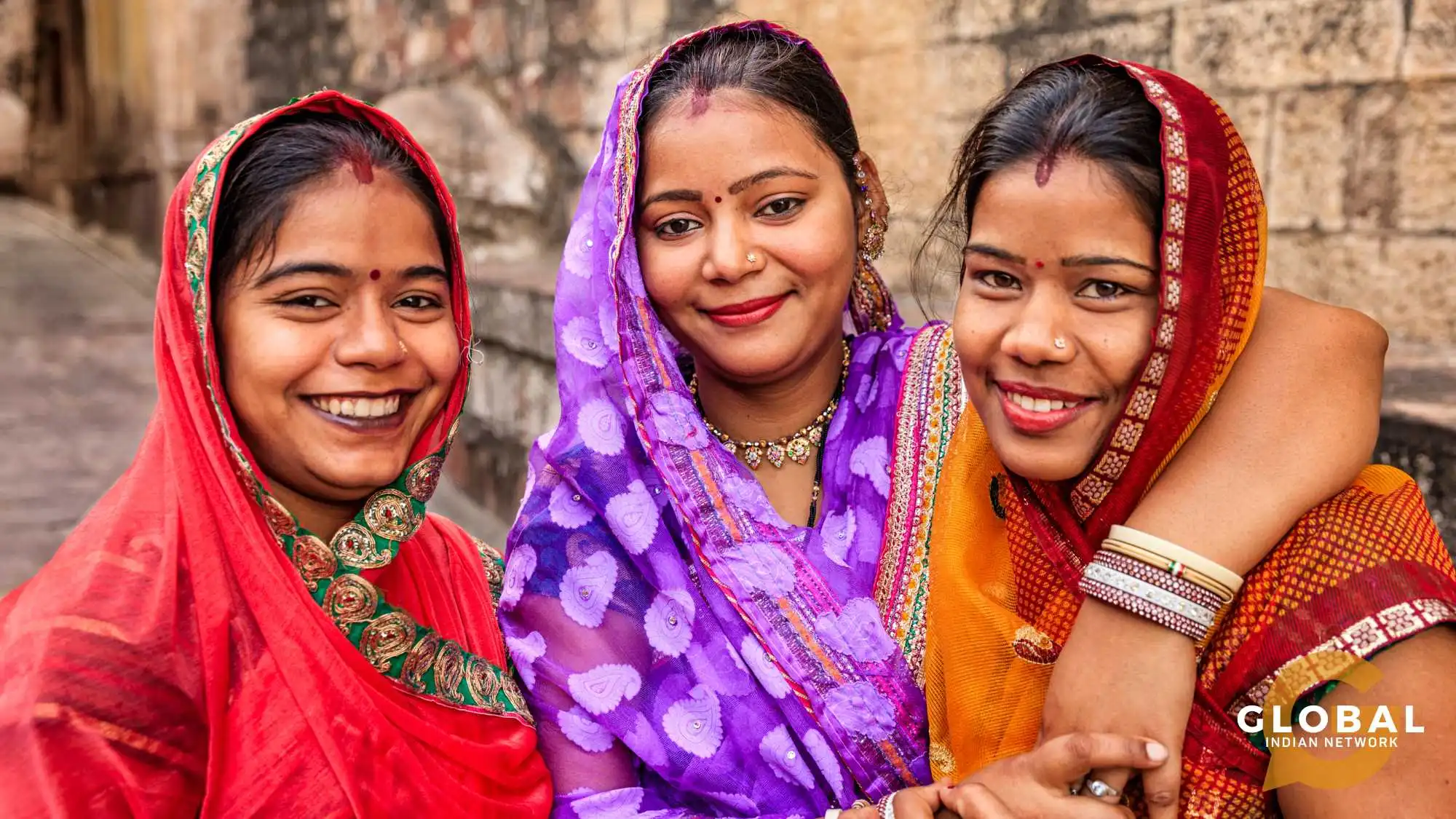In the last decade or so, India has emerged as a global powerhouse, with its citizenry accomplishing feats of great commendation. While India continues to achieve standing at the international level, Indian women continue to face several forms of discrimination that are defiant of what Indian society dreams to be. With each woman who faces any inequity based on her gender, India falls short of achieving a prosperous civil society.
It is crucial that, as a nation, we begin correcting these grave injustices that have haunted women for millennia. Even in the 21st century, women continue to face discrimination on the front. We must start prioritizing the urgent objectives of women’s empowerment in India.
Listen To This Podcast: Inspiring Change: Chitra Stern’s Advocacy for Women’s Empowerment and Entrepreneurship
Table of Contents
What is Women’s Empowerment?
The concept of women’s empowerment represents a significant departure from historical gender dynamics, where women have long been marginalized and denied autonomy. Traditionally confined to subordinate roles within society, women are now challenging these norms, striving for equality and agency for women in all aspects of life.
Women’s empowerment fundamentally aims to address the systemic inequalities and biases that have historically disadvantaged women. Fighting any discrimination against women, it rejects the notion of women’s inherent inferiority and advocates for their rights to self-determination, equal opportunities, and freedom from oppression. By dismantling patriarchal structures and promoting gender equality, women’s empowerment seeks to create a more just, inclusive, and progressive society for all, as well as creating empowered women.
There are a plethora of ways through which the empowerment of women is achieved. These include political changes, activist movements, awareness campaigns, and establishing NGOs and women’s self-help groups. All these reforms aim to throw light on the status of gender discrimination and prioritize the objectives of women’s empowerment in India.
The Need for Women’s Empowerment in India
While India has emerged as a global powerhouse in many industries and has seen a boom in global recognition, there still exists a deep divide between men and women in various sections of society. Women are still discriminated against and face oppression in multiple spheres. The participation of women in economic tasks is still prohibited in many areas, and women often do not have access to education, especially rural women. The rights of women are still being curtailed, with human rights, political rights, and cultural rights being violated commonly.
Women are not allowed to gain economic independence and often have to depend on the men in their lives, passed around like commodities from father to husband, frequently as a girl child. Treated as burdens by their fathers, the cycle of gender-based violence continues, with several women facing abuse at the hands of their husbands. All the while, cut off from any economic development, education, or access to resources, these women are forced to live a life of reliance and abuse.
While we see the efforts of this nation bear fruit, we often miss the consequences and hardship women suffer. These issues range from violence against women, child marriage, lack of education, denying equal opportunities for women, and a saddening state of financial independence. It is crucial that this nation rally its resources and aim to solve the most prominent instance of group-based discrimination. Therefore, understanding the objectives of women’s empowerment in India is of utmost importance.
You Might Be Interested In: Inclusivity and Empowerment: Rudrani Chhetri’s Fight for Transgender Rights
Objectives of Women’s Empowerment in India
The all-encompassing objective of women’s empowerment in India is to provide them with self-sufficient agency. The development of women not only boosts their social standing but also provides all-around development in all spheres of Indian society. By ensuring equal rights for women in all strata, we uplift the status of women and help them live dignified lives free from all oppression and discrimination.
Education
One of the key objectives for women’s empowerment in India is to provide them access to education opportunities. Education should be the foremost objective through which we achieve women’s empowerment and upliftment of women. Educated women have the ability and potential to serve as key members of society and provide massive support to their families. By providing women with education, we adequately equip them to deal with life’s challenges and build their thinking skills, a critical tool that helps in their decision-making processes.
Economic Empowerment
The next important objective of women’s empowerment in India is imparting the correct skills needed to be self-reliant financially. Providing women with knowledge about economic growth allows them to generate income that betters the lives of their families. Women can better position themselves in society through various women empowerment schemes and other economic services, such as financial assistance.
Additionally, allowing women access to equal employment opportunities and ensuring equal wages is paramount. Furthermore, providing women with economic empowerment births a new generation of women entrepreneurs who deliver creative outputs to roles previously occupied by men. Additionally, upskilling microfinance and digital skills of women via skill development programs allows them to tap into markets that they did not have access to before and opens up several new economic opportunities.
Eradicate Gender-Based Violence
Another critical objective of women’s empowerment in India is to fight against the pervasive culture of gender-based violence that is so deeply perpetuated within Indian society. Women from all walks of life experience domestic violence right from childhood. Often, this abuse comes from male hands. It is of the utmost responsibility that governments tighten up gender-responsive policies to take successful action against wrongdoers. Societal attitudes must be shaken up, and gender equality, as well as the welfare of women, must be promoted.
Access to Healthcare Services for Women
In many areas of the country, women do not receive the care and attention they need in life-or-death situations. Women must have access to healthcare that provides comprehensive care for their physical and mental states. Additionally, they must receive the proper maternal, reproductive, and nutrition care, especially for pregnant women. Therefore, access to health care is a critical tenet in the objectives of women’s empowerment in India.
Legal and Political Inclusion
Women need adequate representation in various legal and political bodies to make decisions that concern them. Historically, women have not had the liberty to shape law and politics in ways that benefit them, and their representation in these areas is vital for the government to take more positive steps in favour of women.
Social Norms
Creating social awareness by challenging societal norms regarding how women are treated in all spheres of life is another objective of women’s empowerment in India. Certain cultural norms that prey on women must be broken and uprooted from society, and women’s inclusion must happen holistically.
Listen To This Podcast: Driving Change: Championing Women’s Rights in India with Swati Maliwal
Conclusion
In conclusion, while India has made significant strides in various fields, the persistent gender disparities and discrimination against women remain a pressing issue that impedes the nation’s progress towards true prosperity and equality. Despite being hailed as a global powerhouse, India cannot ignore the harsh reality faced by its women, who continue to endure various forms of oppression and inequality.
By focusing on key objectives such as education, economic empowerment, eradication of gender-based violence, access to healthcare, legal and political inclusion, and challenging societal norms, India can pave the way for a more equitable and inclusive society where women are valued, respected, and empowered to fulfil their potential. Only by prioritizing the key objectives of women’s empowerment in India can it achieve its vision of becoming a prosperous and inclusive nation for all its citizens.
FAQs
What is the aim of female empowerment?
Empowerment aims to enable women to gain control over their lives, make informed decisions, and assert their rights. It promotes autonomy, self-confidence, and a sense of agency, ultimately leading to greater equality and well-being.
Why is women’s empowerment important for the development of the country?
Women’s empowerment is crucial for the development of a country as it unlocks the full potential of half of its population. By empowering women, nations benefit from their contributions to the economy, society, and governance. Additionally, it leads to better health and education outcomes, reduced poverty, and increased social stability. It is critical to understand the objectives of women’s empowerment in India.
What is Feminism?
Feminism is a socio-political movement advocating for gender equality and challenging the systemic oppression and discrimination women face. It aligns with women’s empowerment by striving to dismantle patriarchal structures, promote women’s rights, and create a more equitable society where women have equal opportunities and autonomy.










[…] by various intersectional debates. From breaking traditional barriers to driving economic growth, women's empowerment in India has far-reaching implications. However, like any social movement, it comes with its own set of […]